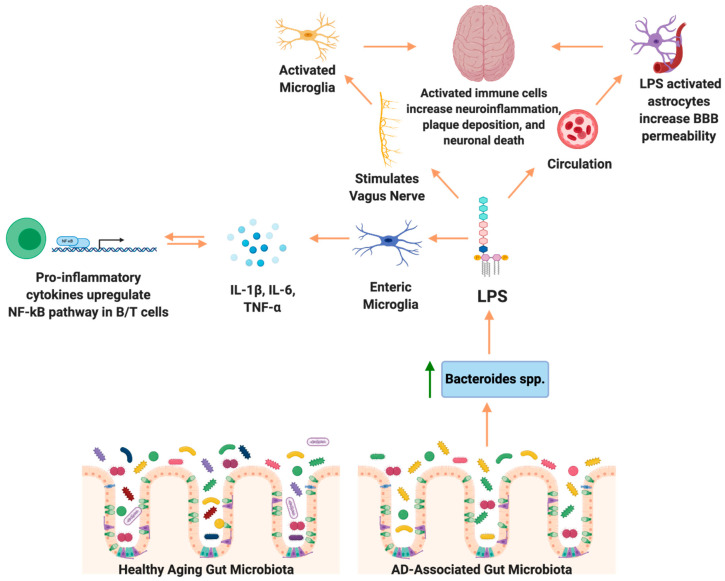Figure 1.
Proposed mechanism of lipopolysaccharide (LPS)-induced neuropathologies in Alzheimer’s disease (AD). AD-associated microbiome composition has increased abundance of lipopolysaccharide (LPS) producing bacteria, including Bacteroides. LPS stimulates enteric microglia to produce Interleukin (IL)-1β, IL-6, and Tumor necrosis factor (TNF)-α, which induces the nuclear factor kappa-B (NF-κB) pathway, therefore upregulating expression of proinflammatory cytokines. Similarly, LPS stimulates the vagus nerve, activating microglia in the brain, thereby promoting neuroinflammation. LPS is able to translocate from the gastrointestinal tract to the circulatory system and stimulate astrocytes. The reduction in blood brain barrier (BBB) integrity allows LPS to cross the BBB and further promote inflammation in the brain.

